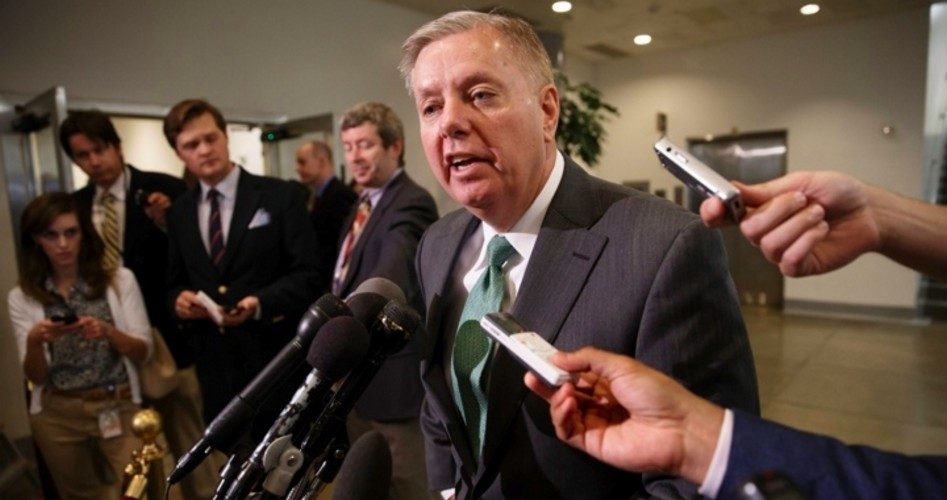
Just one day after a leading Republican warned that further releases of prisoners from the U.S. prison on Guantanamo Bay could lead to calls for his impeachment, President Barack Obama said Thursday he has “no apologies” for trading five high-level Taliban members for the return of Army Sergeant Bowe Bergdahl, who had been held by the Taliban for the past five years.
“I make absolutely no apologies for making sure that we get back a young man to his parents, and that the American people understand that this is somebody’s child, and that we don’t condition whether or not we make the effort to try to get them back,” Obama said during a joint press conference with British Prime Minister David Cameron in Brussels.
Republican leaders have continued to criticize the release of the Taliban leaders in a prisoner exchange arranged through the mediation of the government of Qatar, which has given assurances to the United States that the released prisoners will be kept under surveillance in that country for one year. Republicans have raised concerns that the “worst of the worst” Taliban leaders will eventually rejoin the terrorist network in Afghanistan and pose an increased danger to American troops, some of whom are expected to be there through the end of 2016.
Obama has also been faulted for violating a law requiring a notification to Congress 30 days or more before any prisoner held at Guantanamo is released. Senator Lindsey Graham (shown), a South Carolina Republican and a member of the Armed Services Committee, said Wednesday that any further releases without notice could prompt calls for impeachment in the Republican-controlled House.
“It’s going to be impossible for them to flow prisoners out of Gitmo now without a huge backlash,” said Graham, who served as a House prosecutor during former President Clinton’s 1999 impeachment trial. “There will be people on our side calling for his impeachment if he did that.”
The status of the detention center at the U.S. Navy station in Cuba has been a bone of contention between the president and congressional foes for more than five years. Obama came into office in 2009 promising to close the prison that has been holding terror suspects since January 2002, just three months after the United States engaged Taliban and al-Qaeda forces in Afghanistan.
In January 2009, Obama signed an executive order to close the facility, but the Senate, by a vote of 90-6, approved an amendment to the Supplemental Appropriation Act to deny funds for transfer or release of Guantanamo prisoners. The senators, fearful that trials of terror suspects would attract further terrorist activity, were opposed to having them held in the United States.
Last December, both houses passed an amendment to the National Defense Authorization Act, requiring the 30-day notice before closing the prison. Obama signed the bill, but accompanied the signing with a written proviso, stating: “The executive branch must have the flexibility, among other things, to act swiftly in conducting negotiations with foreign countries regarding the circumstances of detainee transfers.” Obama and other Democrats often criticized President George W. Bush for his frequent use of similar “signing statements” to indicate a willingness to waive provisions of newly enacted laws.
“We had discussed with Congress the possibility that something like this might occur,” Obama said during his Brussels news conference. But the “fragile nature of these negotiations,” along with reports of Bergdahl’s deteriorating health, made it necessary to seize the opportunity, he said. “We felt it was important to go ahead and do what we did, and we’re now explaining to Congress the details of how we move forward. But this basic principle that we don’t leave anybody behind and this basic recognition that often means prisoner exchanges with enemies is not unique to my administration.”
There was an apology from the White House earlier this week about the lack of advance notice, though it did not come from the president. Dianne Feinstein (D-Calif.), chairman of the Senate Intelligence Committee, told reporters she received a call from Deputy National Security Adviser Tony Blinken Monday evening apologizing for the “oversight.”
Democrats generally closed ranks around the president in what has been a controversy ever since the prisoner trade was announced on Saturday.
“My own personal opinion, Guantanamo has been there far too long, and I think that we should get them out of there as quickly as we can,” said Senate Majority Leader Harry Reid of Nevada. “So I’m glad to get rid of these five people, send them back to Qatar, and I think the arrangements made there are, as far as I understand what’s been explained to me, adequate.” Sen. Carl Levin of Michigan, chairman of the Armed Services Committee, said the White House has claimed authority for the president’s action under Article II of the Constitution.
“I’m not a court that’s going to decide whether or not under Article II the commander in chief has the power to move this quickly, even though Congress said you’ve got to give 30 days notice,” Levin said.
Yet nothing in Article II precludes legislation giving Congress a role in the disposition of captured enemy forces. In the final days of the Bush administration, a memo from the Office of Legal Counsel in the Department of Justice reversed its previous opinion that “Congress has no role to play concerning the prosecution of enemy combatants.” The January 15, 2009 memorandum states the Article I, Section 8 power of Congress to “make Rules for the Government and Regulation of the land and naval Forces” gives the legislative body authority to “establish standards governing the U.S. military’s treatment of detained enemy combatants, including standards for, among other things, detention, interrogation, and transfer to foreign nations.” (Emphasis added.) “We disagree,” the memo continues, “with the 3/13/02 Transfer Opinion that this Clause does not permit Congress to establish standards of conduct for the military’s handling of detainees, but rather is limited to the discipline of U.S. troops.”
The timing of the reversal, just five days before the inauguration of the new president, was, of course, convenient for the outgoing administration. Apparently, for Bush’s Justice Department, provisions of the Constitution meant one thing while Bush and the Republicans held the White House, and something else when Obama and the Democrats were about to move in. But the Obama administration has never publicly retracted or repudiated that legal opinion.
In his five-and-a-half years in the White House, Obama has not been bashful about bypassing Congress to accomplish by “pen and phone” policy objectives independent of the lawmaking body of the federal government. That includes the air war he conducted in support of regime change in Libya without obtaining or even seeking congressional approval. In that, he had the support of Lindsey Graham and other congressional hawks who seem not to care when the president usurps the constitutional power of Congress to declare war.
Indeed, a majority in Congress routinely grants to the president even more power than he grabs on his own. In the same National Defense Authorization Act requiring advance notice of the transfer of “Gitmo” prisoners, Congress, for the third year in a row, granted authority to the president to capture and imprison without trial U.S. citizens here in the “homeland,” who allegedly were part of or “substantially supported” al-Qaeda, the Taliban, or allied forces fighting against the United States. Americans so accused may be held indefinitely and without trial until the end of hostilities covered under the Authorization of the Use of Military Force passed by Congress following the September 11, 2001 terrorist attacks on America. In other words, Americans may be imprisoned as unlawful enemy combatants by their own government until the end of the “war on terror” — or the end of the world, whichever comes first.
The bill passed the House late last year by a vote of 315-108, with only 18 Republicans voting against it. In the Senate it was 84-15. Senator Graham voted for it. Among the Senate’s likely presidential hopefuls in 2016, Marco Rubio provided a “Yea” vote, while fellow Republicans Rand Paul of Kentucky and Ted Cruz of Texas voted “Nay.”
Senator Graham, who reprimands the president for violating a provision of an act of Congress, has, with a majority of his colleagues, voted against provisions of the Bill of Rights. If there is irony in that, it appears to have gone largely unnoticed by the duly elected lawbreakers in Washington.
Photo of Sen. Lindsey Graham (R-S.C.): AP Images


